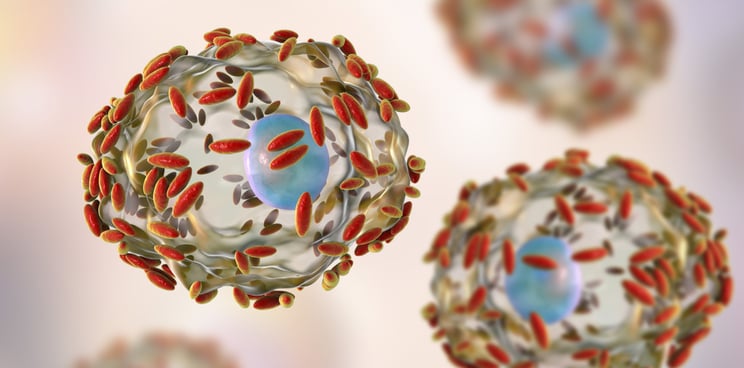An antibiotic-free vaginal tablet developed by the Swedish company Gedea Biotech has cured 82% of women of the common vaginal infection bacterial vaginosis in a 24-patient clinical trial.
Bacterial vaginosis occurs when the normal vaginal microflora — characterized by a high proportion of bacteria from the genus Lactobacillus — become unbalanced with an overgrowth of unhealthy bacteria. This occurs at the same time as a decrease in acidity and the formation of a biofilm that is detrimental to the growth of the lactobacilli.
The standard treatment for bacterial vaginosis is currently antibiotics, but as Gedea Biotech’s CEO Annette Säfholm explained to me, “the recurrence of the infection after treatment with antibiotics is high, which is due to, for example, presence of a biofilm or the microflora being harmed.”
Gedea has developed a novel vaginal tablet, pHyph, that acts by restoring the normal vaginal acidity. “In this way, it creates a vaginal environment that is more beneficial for the protective lactobacilli than for the pathogenic bacteria causing bacterial vaginosis. It also reduces the presence of biofilms,” Säfholm said.
The active ingredient in pHyph is converted in the body to gluconic acid. The presence of this acid lowers the vaginal pH and allows for the regrowth of the Lactobacilli.
Gedea’s treatment has now been fully tested in 22 women who met at least three of the four standard diagnostic criteria for bacterial vaginosis. After using one vaginal tablet every other day for one week, 18 women (82%) no longer met any of the diagnostic criteria for bacterial vaginosis and were considered cured.
Säfholm noted that this cure rate is similar to that typically achieved with existing antibiotic-based treatments and shows that pHyph “has the potential to be an alternative for the treatment of bacterial vaginosis in the future.”
Gedea Biotech’s research team also found that bacterial vaginosis recurrence rates at day 35 were very low, though didn’t specify how this compares with antibiotics. Full data will be presented at the European Spontaneous Preterm Birth Congress in the Netherlands in May.
The company now plans to carry out a controlled clinical trial in a larger number of patients with bacterial vaginosis.
“The upcoming study aims to confirm the cure rate and safety, as well as to have a longer follow-up time for recurrence data,” Säfholm remarked.
She added: “Our aim is that pHyph will be an effective and accessible treatment which can also prevent recurrence in women suffering from bacterial vaginosis.”
Images from Shutterstock





